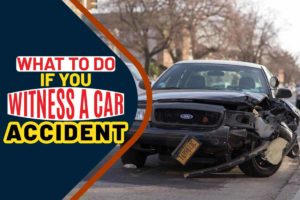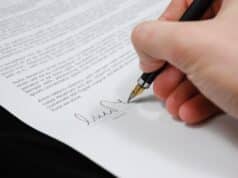 Car accidents are a stressful and potentially dangerous experience for everyone involved. While your first instinct may be to rush to the aid of the people involved, there is a smart way to do it that will keep you safe and not make the situation any more risky or stressful.
Car accidents are a stressful and potentially dangerous experience for everyone involved. While your first instinct may be to rush to the aid of the people involved, there is a smart way to do it that will keep you safe and not make the situation any more risky or stressful.
Technically, you do not need to do anything if you have simply witnessed a car accident, but what kind of person would that make you? Read on for more information about how to help and how to do the most good.
Always The First Step
In any accident, whether you were directly involved or not, the first step is always to call 911. You should never assume that someone has already called for help unless you see emergency medical services or law enforcement at the scene. If you witnessed an accident, take the initiative and moment to call for help.
The details you give to the 911 operator will also help. Calls to 911 are recorded and can be used as evidence, so you help create a record of the accident. An operator may also give you advice based on your description of what you can do to help the people involved.
Your Legal Responsibility
Do you need a lawyer as a witness? Probably not, unless you have somehow become involved in the argument of whose fault the collision was. As simply a bystander, you have no real need for a lawyer that deals with car accidents unless it goes to trial and you have concerns about the legal process.
Most states have Good Samaritan laws in place to protect people trying to help from legal ramifications. It is important to note that these laws only apply to medical aid that you are reasonably sure you can complete. This is not the time to try out something you saw on television. But, if you have some skill and are operating in good faith, you do not need to worry about the eventual outcome, as long as you are helping.
How To Safely Help
Do not rush into the scene of an accident. There may be debris or risk of secondary fire or combustion. It does not take a massive accident to rupture a fuel, oil, or coolant line and cause a fire. Stay a safe distance from the vehicles until you are certain it is safe to proceed.
Under no circumstances should you try to move an injured person. Movement can quickly worsen a wide variety of injuries, so you should wait for an EMT. If there is no time to wait for assistance, you could administer basic first aid or whatever you are comfortable doing and which is absolutely necessary.
When law enforcement arrives, they will probably want to take your statement. You should not worry about this, since as a witness, you are not at risk of any liability. Cooperate and provide any information you can, especially if it was a hit-and-run accident.
Stay In Your Lane
You should be trying to be helpful without inserting yourself into a situation where you are unwanted. Tensions can run high following a car accident, and drivers may not appreciate any questioning or your ideas on what happened. Do not discuss the accident with the drivers; your statement is for the police.
The best way you can help is simply by contacting the professionals and then being there for another person. The presence of a witness can help stressed-out drivers stay in control and not argue with each other.
The little things will be the most useful. Let a victim use your cell phone to call for a friend or family member, provide a pen and paper, or let someone use an extra coat, emergency blanket, or umbrella if there is inclement weather. These are the things that people will be the most thankful for while also keeping themselves safe from the wreckage.








